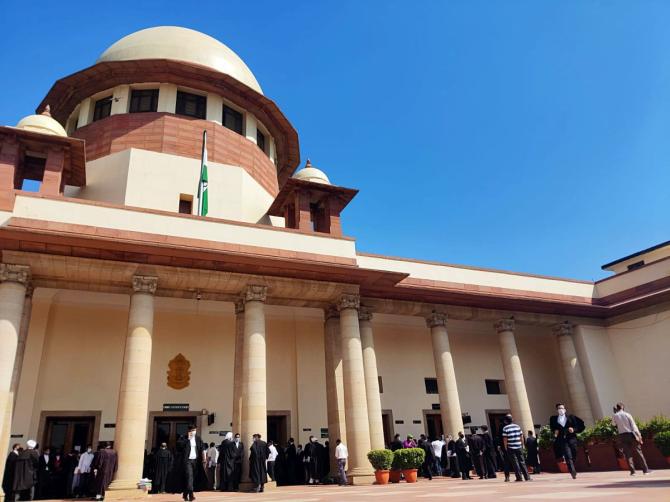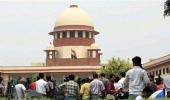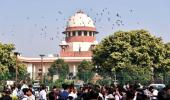A charge sheet filed by an investigating agency is not a public document, the Supreme Court said on Friday, holding that putting it in public domain will violate the rights of both the victim and the accused.

The top court made the observations while hearing a plea by journalist Saurav Das seeking free public access to chargesheets and final reports filed as per Section 173 of the Code of Criminal Procedure, 1973.
"If the relief as prayed in the present petition is allowed and all the chargesheets and relevant documents produced along with the chargesheets are put on the public domain or on the websites of the state governments it will be contrary to the Scheme of the Criminal Procedure Code and it may as such violate the rights of the accused as well as the victim and/or even the investigating agency.
"Putting the FIR on the website cannot be equated with putting the chargesheets along with the relevant documents on the public domain and on the websites of the state governments," a bench of Justices MR Shah and CT Ravikumar said.
The top court dismissed the PIL for lack of merit.
The apex court orally observed that if FIRs are given to those unrelated to the case like busybodies and NGOs, they might be misused.
Advocate Prashant Bhushan submitted it is the duty of every public authority to put out that information suo motu (of its own accord).
Bhushan submitted while the direction of the top court to the police to publish copies of FIRs on their websites has induced transparency in the working of the criminal justice system, the logic of disclosure applies more strongly to charge sheets as they are filed after due investigation.
A chargesheet is a report prepared by investigation or law enforcement agencies for proving the accusation of a crime.
Once the charge sheet has been submitted to a court of law, prosecution proceedings against the accused begin.
As per Section 207 CrPC, the investigating agency is required to furnish the copies of the chargesheet along with the relevant documents to be relied upon by the prosecution to the accused and nobody else.










